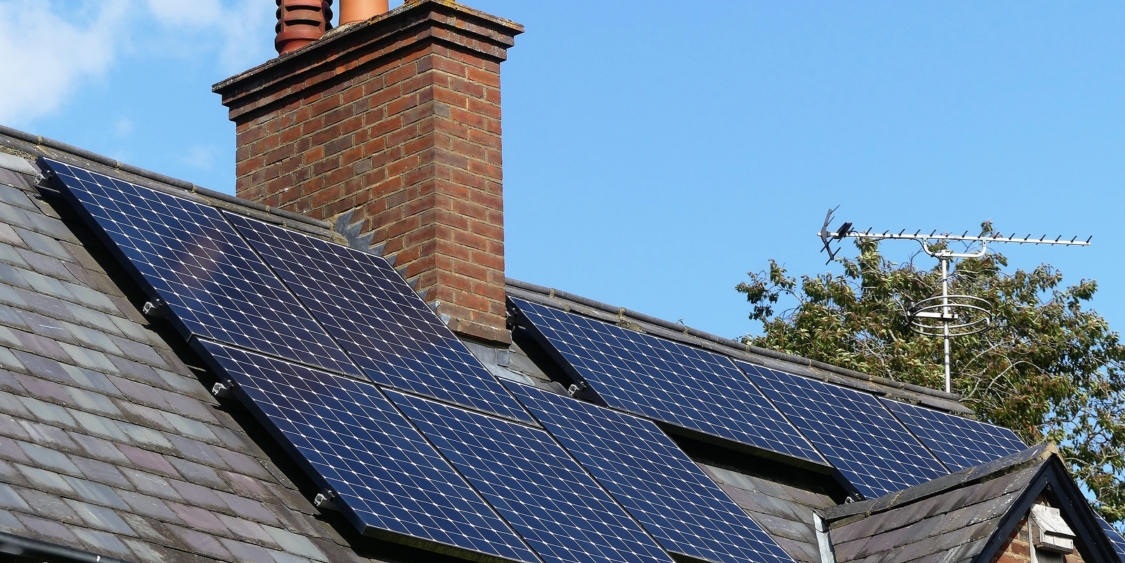By John McFerrin
The parties to the net metering controversy before the West Virginia Public Service Commission have reached a compromise settlement. While the Public Service Commission still has to approve the compromise, it will likely do so. When it does, the compromise will become the official position of the Public Service Commission, and Monongahela Power and Potomac Edison will have to follow it.
Almost all home solar systems are connected to the electricity grid. During the day, the homes produce more electricity than they need. This electricity goes into the electrical grid, available for use by other customers.
At night and on cloudy days, these homeowners use more electricity than their systems produce. During those times, they import electricity from the grid. If, at the end of the month, the homeowner has used more than he or she has exported to the grid, the homeowner is billed for the excess. The system is known as net metering.
Under the current system, the electricity the homeowner takes from the grid is the same price as the electricity that they supply to the grid. The electric company credits the homeowner for the electricity supplied to the grid from the homeowner’s system at the retail rate for electricity. It then charges the homeowner for electricity that the homeowner takes from the system produced at the same retail rate. In most situations, the amounts taken from the grid and supplied to the grid are about the same, so the homeowner’s bill for electricity (not considering the service charge that First Energy imposes) is close to zero.
First Energy (parent company of Monongahela Power and Potomac Edison) found this rule unfair. It said that it was paying for the distribution system that supplied electricity on cloudy days and at night and should be compensated for that cost. If it, in effect, bought electricity from solar customers at the same rate as it sold them electricity, it could never recover these costs.
The solution that First Energy proposed was to pay solar customers the wholesale rate for electricity (about 6.6 cents per kilowatt hour) while continuing to charge solar customers for the electricity they used at the retail rate (about 13 cents per kilowatt hour). It wanted to apply this new rate to all solar customers who installed their systems after March 27, 2024.
This dramatic increase in costs to solar customers produced a firestorm of controversy. While the Public Service Commission typically gets a handful of comments on rules it is considering, about 1,500 people commented on the proposed change. The commenters included The West Virginia Highlands Conservancy.
Now, the parties in the dispute before the Public Service Commission have reached a compromise settlement. In the future, Mon Power and Potomac Edison will pay solar customers for the excess electricity they send to the grid at the rate of 9.343 cents per kilowatt hour. While this is less than the customers had been receiving for the electricity they produced, it is more than the utilities had proposed.
The rate will remain in effect for two years. After that, it could be changed by the Public Service Commission. It would go through the usual process that the Public Service Commission uses to set rates.
The settlement contains some other features as well. It extends the time for those who want to benefit from the current system (electricity going to the grid is the same price as electricity coming from the grid) to December 31, 2024. Anyone who signs up to connect a solar system to the electrical grid before then can take advantage of the current rates.
The settlement also continues the present rates for current solar customers and those who become solar customers before December 31, 2024, for 25 years. Those who become solar customers before then will get to keep the current full compensation rate for electricity they produce for that long.
Finally, the settlement makes the rate stay with the solar system, even if the house is sold. If a solar customer who is grandfathered in under the old system sells the home, the buyer gets to keep the old rate.
Right now, the settlement does not apply to customers of Appalachian Power. However, now that this settlement has set a precedent, it probably won’t be long before Appalachian Power asks for the same rule.
A bill in the West Virginia Legislature would have required the Public Service Commission to maintain the current rule. While the bill was introduced, it never appeared to make any progress. Although it could still theoretically pass, it would take a Senator, Delegate, or lobbyist with a lot of power and a lot of favors to call in to step forward and drag it across the finish line.

